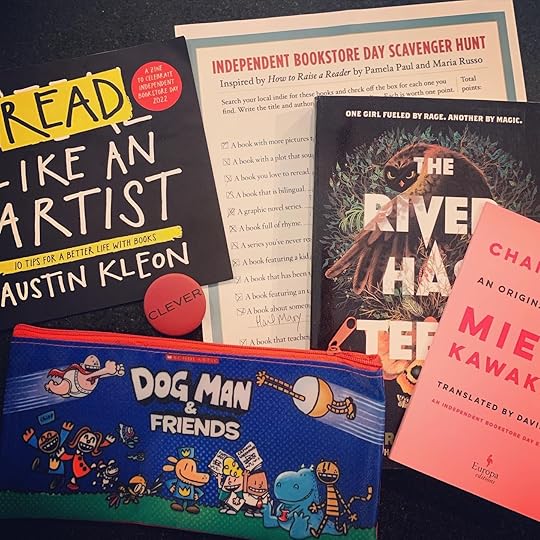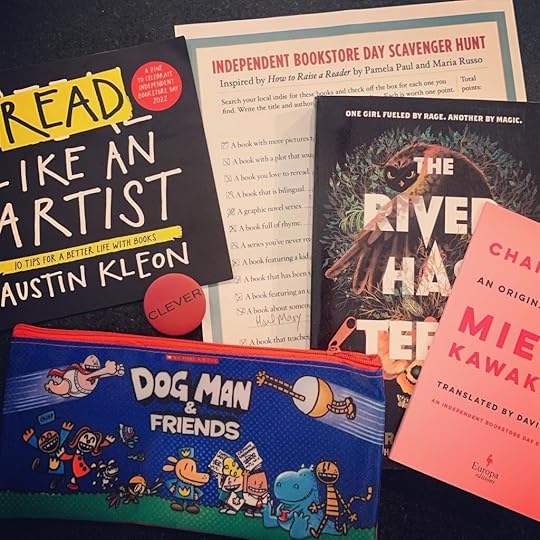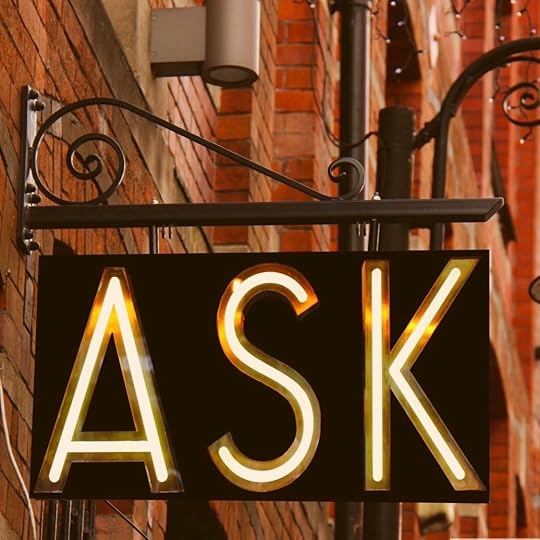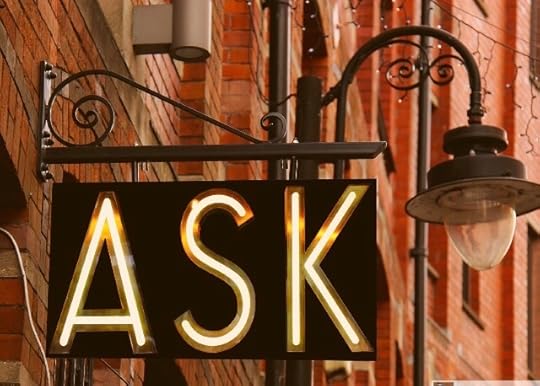April Davila's Blog, page 15
May 4, 2022
The Slow Query


This really should go without saying, dear writers, but when it’s time to start querying agents, you should NEVER send out a bulk email to a few dozen agents hoping to get lucky. Just don’t. You know how you can totally tell just by glancing at your inbox which emails can be deleted as junk? Well agents can too. Don’t be the junk.
This came up in A Very Important Meeting the other day when a writer told me she was going with the Slow Query method. I googled it immediately and didn’t find anything so I’m assuming she made it up, but I love the phrasing because it resonates with the way I queried agents, so I’m sharing my own interpretation of it here. In short: querying is a slow process. Embrace it.
Here’s what you do:
Make a SpreadsheetEven if you’re not a spreadsheet kind of person, trust me. Open a google spreadsheet and start listing the agents you’re interested in. If you’re new to this, you’re probably asking yourself how you even know what agents to be interested in. Well, I’ll tell ya.
Whenever you read a book (btw – you should be reading lots of books) and it seems like it might be on the same shelf as your book (when it’s finally published) – meaning, it has a similar style, content or theme, flip to the acknowledgements and look for the part where the writer thanks their agent.
Google that agent. Find their submissions guidelines. Copy that url and put it in the spreadsheet next to the the agent’s name. Make a note of the title of the book that lead you to them. Note anything else that you might want to remember when you reach out to them. Aim for about 30 agents in total.
Start doing this now, even if your book isn’t done. I spent years building my list while working on endless revisions of my first novel. It kept me motivated to think about my book actually going out to agents.
Sort The ListWhen you’re ready to start querying, go through your list to do a fact check.
Are they still at the same agency as they were when you first looked them up?Have they changed their submission guidelines?What is their reputation like (try googling their name with the word “asshole” and see what comes up)?Don’t forget, even though we all long for representation, you’re the boss in this relationship. You are hiring someone to work for you. Do your homework.
Then sort your list. Put your dream agent at the top, second favorite below them and so on until you’ve sorted all 30. You are now ready to query.
Do The Deed – SlowlySpend the time to write a beautiful cover letter. Customize it as much as possible. And for goodness sake, follow their query guidelines EXACTLY.
Do this five times, sending out letters to your top five agents. To give you a sense of how much work this is – I spent a week writing my first five query letters. Take care, go slowly, do it right.
Here are a few post I’ve written in the past about query letters:
All The #AmQuerying DetailsWriting the Query Letter SynopsisReflections on a Successful QueryAfter you’ve sent out those first five queries, do something else. Start a new project, take a hot bath, get drunk, whatever you do to unwind.
When the first rejection comes in (and there will be rejections – be prepared), you take a day to cry about it, then you draft a query to agent #6 (btw – in case it needs saying, treat every agent as if they’re your #1, they don’t need to know about your little spreadsheet).
And what to do if you don’t hear back? I’ve heard many a writer complain that they didn’t even get a rejection. If you’ve waited weeks (like, 6 weeks) without word, it is generally acceptable to follow up, but you must be patient. If you still don’t hear back, assume it’s a pass and move on.
If Nothing HappensIf you get through your list of 30 agents without a yes, you need to revise your query letter, your manuscript, or both. At that point I would recommend hiring a professional. A quick google search will offer up plenty of options. When asked, I point people to Jane Friedman’s website. She has more information on there than any one writer could ever need.
Good luck!
May 2, 2022
The Plot


My friend Tessa Williamson gave me a copy of The Plot, by Jean Hanff Korelitz, and I am plowing through it. It is the best fictional work I’ve ever read on the topic of writing, but with suspense and a quickly evolving plot. In fact, even though it is fiction, it shares some deep truths about writing.
Here’s my favorite part so far:
The word that comprised the relationship between a writer their spark was “responsibility.” Once you were in possession of an actual idea, you owed it a debt for having chosen you, and not some other writer, and you paid that debt by betting down to work, not just as a journeyman fabricator of sentences but as an unshrinking artist ready to make painful, time-consuming, even self-flagellating mistakes…
It goes on, but I’ll eave you there. If you’re a writer (and I assume you are if you’re reading my blog) You really should get yourself a copy. You can thank me later.
May 1, 2022
How I Keep Myself Organized
I was at lunch with a writer friend of mine the other day and she asked how I organize my work day. Whenever I get questions like this, I assume they’re rhetorical. Or I’ll give the most basic answer: I write in the mornings, then do all the non-writing things.
But we had been talking about how it can be difficult to know what to work on when we sit at our desks, and how that can often lead to just doing the thing that happens to be at the top of our inbox and then realizing three hours later that the thing we meant to get done, didn’t actually happen. So I asked her: do you really want to know? She did. Here’s what I told her:
All The ThingsOver the years I’ve developed a pretty systematic way of doing things that helps me get a lot of shit done. To give you a taste, I’m working on my second novel (3-4 hours a day), I manage A Very Important Meeting, I write this blog (almost daily), keep my freelance clients happy, run the 6-Week Mindful Writers Challenge, publish my newsletter (which I just this week moved to Substack – check it out and subscribe here), post meditations for writers on Insight Timer and do my best to keep everyone I know up to date via social media (mostly via Twitter and Instagram if you’re curious). Oh yeah, and I also have two kids, so at 2:30 every day, I close my laptop to drive the mom taxi for a few hours then make dinner.
When I list it all out like that it actually looks like a lot. It is a lot. And I decided a long time ago that I wasn’t interested in working through the night. So how do I stay focused and make time for it all? Hang onto your hats, dis about to get nerdy.
Part 1: File EverythingThe bedrock of my whole system is my two-part filing protocol (you were warned!) which I put into place years ago after reading David Allen’s book Getting Things Done. Here’s what it looks like:

In the top bin are 12 tabs (one for each month) and manila folders number 1-31. This is where I keep track of things that I’m going to need on any given day. For example, if I have a freelance assignment that I intend to work on next Tuesday (the 3rd), I put a printout of the email from my editor into the file marked 3.
On May 3, I’ll open the file marked 3, pull out the papers I need for that day, then put the empty 3 folder behind the June tab (where 1 and 2 already are because I did the same on those days).
The bottom bin is for project-based work. You’ll see there’s a folder for things like “Novel 2,” “Writing Contests.” “AVIM” (short for A Very Important Meeting) and “6WMWC” (6-Week Mindful Writers Challenge).
These are big things that I’m kind of constantly working on, so it’s hard to say “on May 3 I’m going to write chapter 3 of novel 2.” My brain just doesn’t work that way. This is where the second part of my system comes into play.
Part 2: Schedule EverythingEvery Friday I have a half hour blocked out to schedule the week ahead. I go through the file marked IN – this is where I put anything that that lands on my desk during the week that isn’t urgent and can’t be taken care of in less than 5 minutes. On Fridays I decide when all those things are going to get done.
For example: Last week while I was writing I realized that my anniversary is coming up and it’s my turn to plan it. I jotted a note to myself on a scrap of paper, shoved it in the IN folder, and kept writing. Then, last Friday, when I opened the IN folder and found that note, I looked at my google calendar and dropped a half hour window on Tuesday. That’s when I’ll take the time to research anniversary plans. And I won’t be plagued by the feeling that I should be doing something else, because I literally schedule everything.
(BTW – if, on Tuesday, I get to the end of the half hour and haven’t finished the task, I schedule another half hour somewhere on the calendar to continue working. This system does require some foresight. I almost never do anything (work-related) last minute. It’s simply not how I work.)
Same for the bigger projects. Every Friday I start by blocking out my writing time. This was my major take away from Gary Keller’s The One Thing. Writing is my most important thing so I block it out first, in big chunks, every morning starting at 8 and going until 11 or 12 depending on how busy the week is. Then, and only then, I block out an hour to work on AVIM stuff, a couple hours for freelance work, an hour (or more, usually more) to work on my website/blog/newsletter/social media.
When I look at my calendar and see it’s time to work on AVIM, I pull out that folder and look over all the things on the AVIM to do list, chose the most important/pressing item and get started.
Be FlexibleThis system works really well for me as long as I don’t forget that I need time to eat and that things come up unexpectedly. You have to have a way to deal with the unexpected. I have a system for that too.
If something has to happen at a certain time I put it in my calendar in orange. These are meetings, workshops, appointments, reminders to pick up the kids from school, etc. I intentionally leave a lot of space on the calendar every week, knowing that it will fill up (if it doesn’t I take a lunch break in the hammock – this rarely happens).
Things that can be moved get blocked out in blue. For instance, if I’m blocking out an hour for freelance work that isn’t on an immediate deadline, I put it in blue. Then, if something comes up (say a kid comes home sick from school), I know in a glance what can be moved and what can’t.
And lastly, it’s critical to keep in mind that the best laid plans fall apart. I wrote a post a while back talking about some deep wisdom from my business partner, Paulette Perhach. She said:
Someone is always going to be disappointed. Make sure it isn’t always you.
Amen, sister.
And that’s it. That’s the organizational system that keeps me on track and doing all the things I love to do. If you’ve got questions, drop ’em below and I’ll do my best to answer them.
April 30, 2022
Happy Indie Bookstore Day


Today is Independent Bookstore Day (and also my local bookstore’s 15th birthday) so you know we had to celebrate.
Did the scavenger hunt, picked up Austin Kleon’s Read Like an Artist (love him) and even got a cool Dog Man pencil case for the boy.
We also managed to get out of there without buying too many books (always a challenge when I take the kids – they’re used to the library where they can take home as many books as they want and I have to remind them that these books actually cost money so they have to choose ONE – not three, ONE).
Happy Birthday Flintridge Books!
April 28, 2022
June Retreat

This summer, June 11 & 12, 2022, I’ll be part of the team hosting this two-day retreat in Altadena, north of Los Angeles. Take some time to treat yourself well. Hike, swim, eat delicious food, do some writing. It’s going to be lovely.
For more information or to register, visit https://heartbeathouse.net.


April 27, 2022
Claire’s Hatchlings

I was worried. Claire, the hummingbird who built her nest outside my office window, had been gone for a while. I’ve made a habit of glancing up there pretty frequently throughout the day and I hadn’t seen her in two days. Of course, this doesn’t necessarily mean she wasn’t there. I might have just missed her. But I really thought she had abandoned the nest.
I was ready to go pull the thing down and look inside, just to see it up close (I researched it, hummingbirds don’t reuse nests because the babies stretch them as they grow, so it seemed safe to investigate.)
But then this morning I looked up and saw Clair perched on the edge of the nest, shrugging her beak over to feed two little teeny tiny hummingbird hatchlings. They’re SO cute! This time, I borrowed my husband’s iphone (because it’s newer than mine and has a better camera) and I actually got an almost halfway decent shot of the chicks:

I’m so excited.
I’m going to have to watch super close if I want to see them take flight. They’re so little it will no doubt be easy to miss.
Congratulations, Claire. You’re a momma.
April 26, 2022
Bedside Book Stack


Just finished American Dirt, and I’m half way through Violeta. The first few pages of The Dawn of Everything made me want to play hookie for a week and just read that.
April 25, 2022
You Have to Ask


I had lunch with a writer friend a while back who had finished her novel and was preparing to query agents. She was understandably nervous about putting her work out into the world and was working really hard to get everything (synopsis, query letter) as good as it can be.
She was also putting together a list of the agents she wants to query, and because she’s smart, she’s reaching out to published authors she knows to ask if she can use their name in her letter. The trouble is, she told me, that no one was offering to help.
The Ask That Isn’tThis surprised me. Usually writers are up for helping out a fellow writer, especially if it’s something as simple as “can I say that I know you?”
So I asked her.
Me: What exactly did you say?
Her (talking about one specific author-friend she reached out to): I texted her and told her that I finished my novel.
Me: And?
Her: She said “congratulations”
Me: And then you asked if you could drop her name when you query her agent?
Her: She didn’t offer.
I told her that, in my best estimation, this writer friend was NOT giving her the cold shoulder, but in fact probably didn’t even realize that she was being asked for something because the ask was never actually made.
You Have to Ask, For RealsI want to take a minute and talk to the ladies here. This is a thing we do. We wait for things to be offered (check out this piece from NPR about it). Well, I’m here to tell you, people can’t give you what they don’t know you want. It’s time to speak up.
It can be scary, no doubt, but you have to get over it. Take a deep breath and make the ask. Straight forward and unmistakable. Just ask.
Here are just a few of the ways that finding a little bravery and asking for what I wanted changed my life:
A while back, this blog made the Writer’s Digest’s Best 101 Blogs for Writers. Know how that happened? I asked. I personally emailed every friend I had and asked them to nominate me. I even sent them a handy little script they could easily edit when they sent the email so it required very little thought on their part. And it worked. When my now-agent visited a class of mine in grad school he put out the offer that any of us could make an appointment to come talk with him in his office any time (he also said he made that offer every year and no one had ever taken him up on it). I didn’t have a manuscript ready (wouldn’t for another 9 years!), but I called and asked for an appointment and we talked about my book for a little. And when I queried him 9 years later he remembered me.Then there was that time I was changing jobs and really didn’t want to work 40 hours a week anymore. I asked for 80% time so I could work just four days a week. That was a super scary ask. I was sure they wouldn’t give me the job if I voiced what I really wanted. But you know what? They did. Favors as CurrencyTo be clear, I’m not saying you should try to build a career on favors. You have to be strategic about your asks. Treat them as currency.
Only ask for the things that are truly important to you.Understand that you might still get a no. Don’t be discouraged.If you can do something on your own, do it and save your asks for something that you really can’t do alone.Do favors for others whenever you can. This is just good karma. If you’re always asking and never helping, you will eventually run out of good will.What have you been scared to ask for? Did you suck it up and make the ask? Or do you wish you had?
April 24, 2022
Still Into You

There aren’t a lot of long songs about having been together a long time, and of the ones I know, none rock like this one. Enjoy.
April 22, 2022
The Little Voice in My Head Needs Caffeine
Every time I see the word “decaf” a little voice inside my head responds “fuck off.” I’m not even kidding.
Coffee is my last remaining vice and I have no intentions of ever giving it up. I drink it all day, every day and if it’s wrong, I don’t want to be right.
That said, I denied being a coffee snob until my husband bought me this little beauty for my birthday almost two years ago:

We were two months into the pandemic lockdown and I was brewing a LOT of coffee. Like, several pots a day, because despite claiming to not be a coffee snob, I refused to drink coffee that had been sitting for a couple hours.
This glorious machine brews one cup at a time, grinding beans on demand. It is de-licious coffee and now that I’ve grown accustomed to perfect, on-demand brew, I have to own up to it: I am a coffee snob.
But you know what? I don’t drink, I don’t smoke. I quit doing drugs a long while back. So dropping a little hard earned cash on quality coffee feels totally justified. I mean, compare a nice bottle of wine to a pound of fancy beans – no contest. Coffee is cheaper, it doesn’t give me a hangover, and it’s acceptable to bring it to parent/teacher conferences.
If you ever need ideas for what to get me (did I mention my birthday is coming up…?) coffee is always a win.



